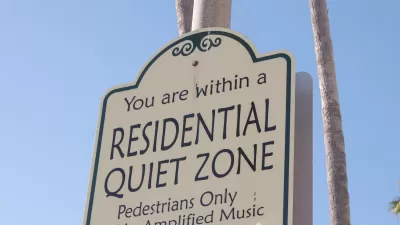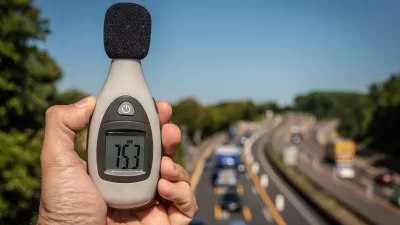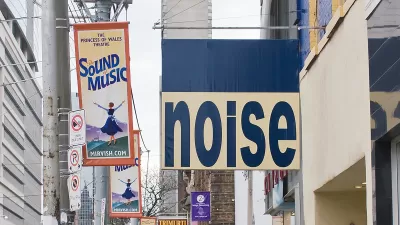The world is noisier than ever, and the long-term effects of exposure are serious. Still, noise pollution isn’t considered a legitimate environmental hazard.

"Noise is never just about sound; it is inseparable from issues of power and powerlessness. It is a violation we can’t control and to which, because of our anatomy, we cannot close ourselves off," writes Bianca Bosker. In this feature piece, she examines the increase in noise, in cities as well as in the most remote of places, and the physical and psychological toll on humans and animals.
Research has clearly shown that noise impacts health in a number of ways, reports Bosker. "Large-scale studies show that if the din keeps up—over days, months, years—noise exposure increases your risk of high blood pressure, coronary heart disease, and heart attacks, as well as strokes, diabetes, dementia, and depression." Yet noise pollution is not recognized as a public health threat and regulation has been inconsistent.
Bosker notes the many sources of noise in the modern world, but she describes in much more detail the particular case of data centers. Residents living near these complexes say the constant humming from the chillers at these huge complexes is unbearable. "Noise, having emancipated itself from the human hand, is becoming autonomous and inexhaustible. Human noisemakers have to sleep, but our mechanical counterparts, which do not tire, die, or strain their vocal cords, can keep up a constant, inescapable clamor," adds Bosker.
FULL STORY: Why Everything Is Getting Louder

Alabama: Trump Terminates Settlements for Black Communities Harmed By Raw Sewage
Trump deemed the landmark civil rights agreement “illegal DEI and environmental justice policy.”

Planetizen Federal Action Tracker
A weekly monitor of how Trump’s orders and actions are impacting planners and planning in America.

Why Should We Subsidize Public Transportation?
Many public transit agencies face financial stress due to rising costs, declining fare revenue, and declining subsidies. Transit advocates must provide a strong business case for increasing public transit funding.

Understanding Road Diets
An explainer from Momentum highlights the advantages of reducing vehicle lanes in favor of more bike, transit, and pedestrian infrastructure.

New California Law Regulates Warehouse Pollution
A new law tightens building and emissions regulations for large distribution warehouses to mitigate air pollution and traffic in surrounding communities.

Phoenix Announces Opening Date for Light Rail Extension
The South Central extension will connect South Phoenix to downtown and other major hubs starting on June 7.
Urban Design for Planners 1: Software Tools
This six-course series explores essential urban design concepts using open source software and equips planners with the tools they need to participate fully in the urban design process.
Planning for Universal Design
Learn the tools for implementing Universal Design in planning regulations.
Caltrans
Smith Gee Studio
Institute for Housing and Urban Development Studies (IHS)
City of Grandview
Harvard GSD Executive Education
Toledo-Lucas County Plan Commissions
Salt Lake City
NYU Wagner Graduate School of Public Service





























